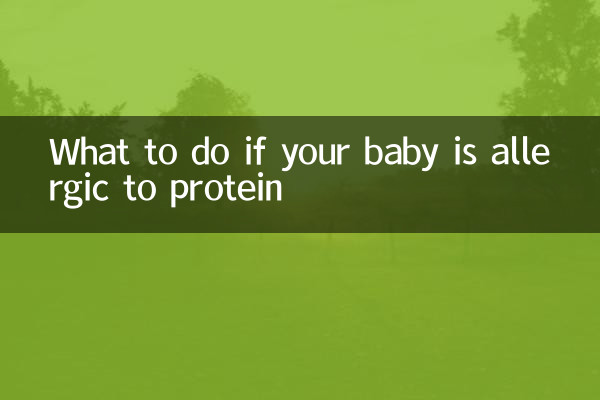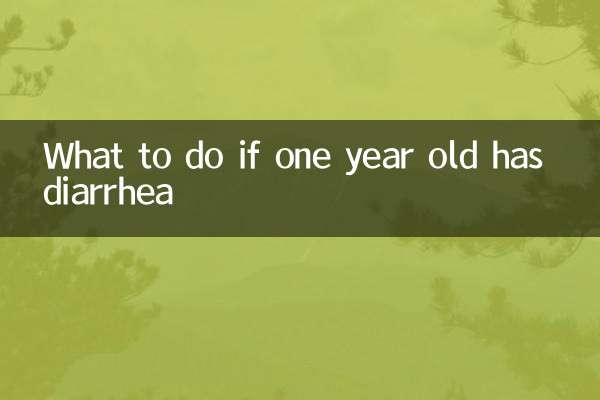What to do if your baby is allergic to protein
In recent years, the incidence of protein allergies in infants and young children has gradually increased, becoming the focus of many parents. Protein allergy may cause rashes, diarrhea, vomiting and other symptoms in babies. In severe cases, it may even affect growth and development. This article will start fromSymptom recognition, common allergens, countermeasuresProvide scientific guidance to parents in three aspects.
1. Common symptoms of protein allergy

| Symptom type | Specific performance | Appearance time |
|---|---|---|
| skin reaction | Eczema, erythema, urticaria | Within 2 hours after eating |
| digestive system | Diarrhea, vomiting, bloating | Several hours to 24 hours after eating |
| respiratory tract | Wheezing, coughing, rhinitis | A few minutes to 2 hours after eating |
2. Common protein allergens
Protein allergies in infants and young children are mainly related to the following foods:
| Allergen type | common food | alternative |
|---|---|---|
| milk protein | Formula, cheese, yogurt | Deeply hydrolyzed milk powder, amino acid formula milk powder |
| egg protein | Whole eggs, egg whites | Egg yolk (some babies can tolerate it) |
| soy protein | Soy milk, tofu | Other plant protein sources |
3. Countermeasures and feeding suggestions
1.Seek medical attention promptly for diagnosis: If you suspect that your baby has a protein allergy, you should seek medical attention as soon as possible to determine the allergen through a blood test or skin prick test.
2.Strictly avoid allergens: After diagnosis, you need to completely avoid foods containing allergens. When reading food labels, pay attention to the "may contain" prompts.
3.Choose alternatives scientifically:
4.Nutritional supplements: Avoiding diet may lead to a lack of certain nutrients. Calcium, vitamin D, etc. should be supplemented under the guidance of a doctor.
4. Allergy Management Timetable
| age stage | Management focus | Review suggestions |
|---|---|---|
| 0-6 months | Strictly avoid and choose suitable formula milk | Monthly assessment of growth and development |
| 6-12 months | Add complementary foods carefully and record food reactions | Review allergy status every 3 months |
| 1-3 years old | Try low-dose tolerance training (under the guidance of a doctor) | Review every 6 months |
5. Prevention and Prospects
Research shows that early and moderate exposure may reduce the risk of allergies, but only under professional guidance. Most babies with milk protein allergy will gradually tolerate it at the age of 3-5, while allergies to peanuts and tree nuts may last longer. Parents should remain patient, follow up regularly, and do not try to desensitize themselves.
Finally, please note that this article is for reference only. Please refer to your doctor’s opinion for specific diagnosis and treatment plans. If your baby has severe allergic reactions such as difficulty breathing or pale complexion, seek medical attention immediately.

check the details

check the details